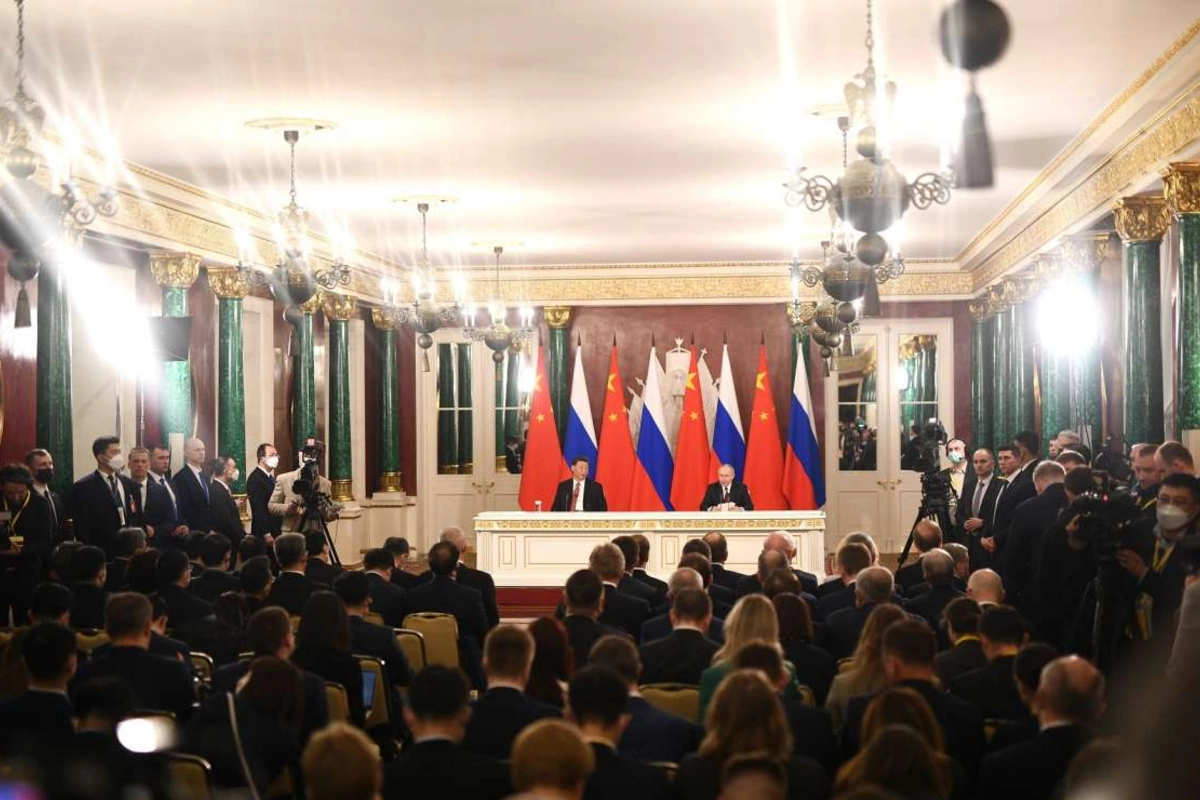
What Do Closer Chinese-Russian Ties Mean For Central Asia?
(RFE.RL) Shortly after wrapping up a high-profile meeting in Moscow with Russian President Vladimir Putin, Chinese leader Xi Jinping turned his sights toward Central Asia and announced plans to host a summit in May as the ripple effects from Russia’s invasion of Ukraine continue to shake up the region.
The announcement came on the heels of a visit to Russia where Xi and Putin heralded a new era in their ties despite fallout from Moscow's invasion of Ukraine, a development that has wide-ranging ramifications for Central Asia.
The Kremlin traditionally viewed the area as its strategic backyard, but has been displaced by China as the premier economic force for the region’s five countries. Moscow’s war in Ukraine has released geopolitical and economic shock waves and seen China’s role in the region grow through diplomatic summits and new initiatives that have disrupted the tightrope that Central Asian governments have walked for balancing their ties between China, Russia, and the West.
As Xi and Putin strengthen their partnership and work closer together, Central Asia is now left walking an even wobblier tightrope than before, analysts argue.
“I don’t think Central Asia is caught by surprise by this growing Russia and China cooperation,” Temur Umarov, a fellow at the Carnegie Endowment for International Peace, told RFE/RL. “But the big question is how they will adapt their foreign policies to these big changes.”
Beijing once positioned itself cautiously in Central Asia to ensure it didn’t upset Russia as the Kremlin guarded its influence in the region.
But that dynamic has shifted in recent years.
Beijing has expanded the scope and scale of the Shanghai Cooperation Organization (SCO) and moved to grow its leadership role in the region with stepped up diplomatic engagement and a heightened security presence.
In September, Xi made his first trip abroad since the COVID-19 pandemic to Kazakhstan and then to Uzbekistan for the annual SCO summit. Beijing has stepped up its bilateral diplomatic ties with Central Asia and sought to create more formats with regional governments that don’t include Moscow.
Chinese officials have also been hosting virtual summits with Central Asia’s top brass -- the upcoming meeting in May will be the first in-person summit between the region’s leaders and Xi.
But while the slated summit highlights how China’s influence is rising and Russia’s has diminished since the war started, Umarov says Beijing and Moscow are not competing in the region.
“I don’t see this as an attempt to [snub] Moscow. China doesn’t want to push out or even replace Russia in the region,” he said. “Actually, [China] is working to better coordinate things with Russia and this [fits] with Beijing’s foreign policy priorities.”
In a statement issued on March 21 following the Moscow talks, Xi and Putin spoke about their shared interests in Central Asia, saying that they would work together “to support the countries of Central Asia in ensuring their sovereignty and national development” and safeguard them against so-called “color revolutions and external interference in the affairs of the region.”
Warnings of a “color revolution” have been a standard talking point from Beijing and Moscow when discussing Western involvement in Eurasia.
Xi also used the term to describe unrest in Kazakhstan in January 2022 when violent clashes sparked by simmering popular grievances and a behind-the-scenes power struggle culminated in a Russian-led military intervention under the guise of the Collective Security Treaty Organization (CSTO).
Share on social media
What Do Closer Chinese-Russian Ties Mean For Central Asia?